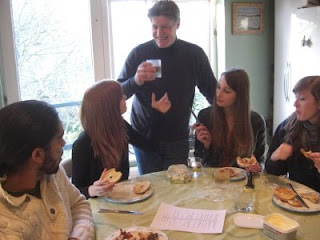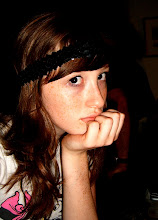The Brief
Here are the two briefs to compare
Preliminary Task-Continuity task involving filming and editing a character opening a door, crossing a room sitting in front of another characters and exchanging a couple of lines of dialogue with them. This task should demonstrate match on action, shot/reverse shot and the 180-degree rule.
Main Task-The titles and opening of a new fiction film, to last a maximum of two minutes. All video and audio material must be original, produced by the candidates, with the exception of a copyright free source.
After working on the prelim, it really helped us to approach our brief with care. Obviously our main task provided us with a lot more scope in regards to how create we could be, as the prelim task was much more structures. It helped us to think more about our target audience before getting started and how to please them. This in turn made us think more about mise-en-scene, and what situations and settings were most appropriate to use. It taught us to really discuss the brief in depth and decide where it was going, and plan it a lot more before we went ahead. In the prelim we tried to do too much which wasn’t possible and so it helped us to keep things simple but effective. I also showed us the importance of planning, and how it was crucial that you check that something is possible before trying to do it. This in turn to us to adapt situations if what we wanted to do wasn’t possible. It taught us to book locations because in the prelim everyone wanted to use the same location and it cause lots of stress.
Pre-Production
The planning of our prelim task had an impact on our film task as it made us look into things more, with greater detail. There much more planning needed for the film brief as we needed to take into account our audience and how to please them. We needed to make much more details notes as well as researching beforehand. I showed me how important a shooting script is as it allows you to shoot out of the order it will appear in the sequence. This was useful as we shot all of the girl’s parts on one day, and all of King’s parts on another so that the process was easier, and ultimately made the continuity better. In the prelim there was no need for research but in the main task we needed to research our genres and our characters to make sure they fitted to the conventions and appealed to our audience. The prelim taught us how to manage our time better. Although we had a much greater time to complete our main task we still had to work fast and within certain deadlines, like the prelim. The prelim had to be really structured without room for much creativity, where as the film brief taught us to play with the conventions, making the piece more creative and abstract. The planning of the prelim task really helped me to get my brain into gear and start thinking about ideas, and I think it made me be more creative in the real thing and play with boundaries.
Production
The production of the prelim really helped when working on the production of the film task. In the preliminary there was no test-shoot or re-shoots so it showed us how important it is to have everything planned before the shoots.
It also made us a lot more conscious of time; we needed to do things quickly, but not rush them. The preliminary task got us back into groups (which we hadn’t been in for over a year) and taught us how to share the shooting time equally giving everyone an opportunity. It also helped us to practice with our equipment before starting the main task. One of the most important things I learnt in the prelim for the production was to shoot much more footage than we needed, even if we weren’t going to edit it. This included taking more than one take of everything, and getting a wide range of angles and a master shot for most shots or lines of dialogue.

One thing we learnt which wasn’t about the actual process of filming, but about the filming day, was to give our actors breaks and asked their opinions on how they thought it was going to make sure they felt comfortable and involved.
It also made us a lot more conscious of time; we needed to do things quickly, but not rush them. The preliminary task got us back into groups (which we hadn’t been in for over a year) and taught us how to share the shooting time equally giving everyone an opportunity. It also helped us to practice with our equipment before starting the main task. One of the most important things I learnt in the prelim for the production was to shoot much more footage than we needed, even if we weren’t going to edit it. This included taking more than one take of everything, and getting a wide range of angles and a master shot for most shots or lines of dialogue.

One thing we learnt which wasn’t about the actual process of filming, but about the filming day, was to give our actors breaks and asked their opinions on how they thought it was going to make sure they felt comfortable and involved.
Post-Production
The main task required a vast amount of editing, whereas the prelim was very basic, and was completed in one hour-and-a-half lesson. We were able to experiment and be more creative because of this. During post production we used a lot of the skills we picked up in the prelim. We also learnt a lot. To start with it taught us how to work in the groups in the edit suite: editing in shifts and swapping around. It reminded us how to use Premier Pro and how everything works. It gave us a practise in key continuity skill such as shot reverse shots and matches on action. It was the first time we had captured in individual clips rather that capturing the whole thing at once. This was so much easier as it allowed us to drag and drop items from the bin whenever we wanted. It made us think about the institutional ‘look’ and the branding of our product. The main task however allowed us to be more creative whilst working with effects, music and titles.
Overall I found that the prelim was extremely useful for the real editing for our film brief. It reminded me how to use Premier Pro and gave me more confidence to stretch my abilities and experiment on other programs such as After Effects-when creating our production logo animation.
Overall I found that the prelim was extremely useful for the real editing for our film brief. It reminded me how to use Premier Pro and gave me more confidence to stretch my abilities and experiment on other programs such as After Effects-when creating our production logo animation.
Reflections/Evaluation
The preliminary task helped us to get back into the group working mode. It taught us how to think about all areas of the sequence including filming, lighting, and sound. It taught us how to break down the sequence in the evaluation and really deconstruct it, which is what we have had to have done in the main task evaluation. One of the main things that I learnt to think about how to improve things and accept that things can go wrong and learnt to work around them.
It was important to discuss things in our group and get audience feedback along the way: this was essential! Screening it a few times helped to get this. It reminded us to break down and encapsulate events whilst shooting i.e. problems, and blog them so that we could see where we went wrong and what things went well.
Overall I enjoyed the project so much. It gave me a brilliant insight into the world of cinematic media.
It was important to discuss things in our group and get audience feedback along the way: this was essential! Screening it a few times helped to get this. It reminded us to break down and encapsulate events whilst shooting i.e. problems, and blog them so that we could see where we went wrong and what things went well.
Overall I enjoyed the project so much. It gave me a brilliant insight into the world of cinematic media.

No comments:
Post a Comment